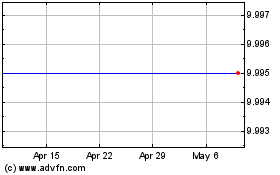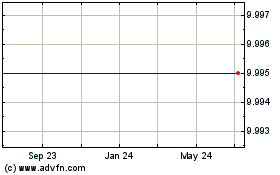UPDATE: US To Watch Students' Loan Debt At For-Profit Schools
July 23 2010 - 9:29AM
Dow Jones News
The U.S. Department of Education on Friday proposed a measure to
penalize for-profit career colleges for graduating students with
high debt-to-income ratios.
The proposal, which will undergo a 45-day comment period and is
expected to face opposition from industry lobbyists, is an effort
to ensure schools are training students for gainful employment in a
recognized occupation. It comes as for-profits are under heightened
scrutiny as they capture a growing share of federal student-aid
dollars.
"Some proprietary schools have profited and prospered, but their
students haven't," Secretary of Education Arne Duncan said. "While
career colleges play a vital role in training our work force to be
globally competitive, some of them are saddling students with debt
they cannot afford in exchange for degrees and certificates they
cannot use."
Under the proposal, training programs at for-profit schools
would be judged on whether former students are repaying the
principal on federal loans, and the relationship between total
student-loan debt and average earnings upon graduation. The
recommendation sets up three tiers of eligibility, with those in
the middle tier facing enrollment restrictions and debt-to-income
disclosure requirements, and the weakest tier losing access to
federal student aid for new students.
According to the Education Department, if career colleges made
no changes, 5% of all programs would no longer be eligible for
federal aid and 55% would be required to warn students about high
debt-to-income ratios. Many publicly traded school operations,
including University of Phoenix parent Apollo Group Inc. (APOL),
Corinthian Colleges Inc. (COCO) and ITT Educational Services Inc.
(ESI), derive close to 90% of their revenue from federal aid.
The recommendation, known as a Notice of Proposed Rulemaking,
has been a long time coming, with federal officials and industry
representatives meeting for a year to discuss new higher-education
regulations. The government put forth its first proposal in late
January, and the stocks of for-profit colleges have soared and
swooned since, propelled by rumors of how programs could gain
exemption from the regulation.
The Education Department said this version is "thoughtful," with
income calculations based on actual graduate earnings rather than
Bureau of Labor Statistics figures. To give time for program
improvement, the agency proposed that the 2012-2013 academic year
be the earliest that programs could be found ineligible for federal
aid.
Still, that may not be enough. The main lobbyist for trade
schools, the Career College Association, lashed out in a press
release late Thursday, calling the proposed metrics "unwise,
unnecessary, [and] unproven." The group also said it may be
unlawful, alleging the Education Department doesn't have the
authority to impose the measure.
Analysts say that Career Education Corp. (CECO) and Education
Management Corp. (EDMC), with their culinary and art-and-design
programs, and ITT, with relatively high tuition, could be most
exposed under the new proposal. American Public Education Inc.
(APEI), known for its inexpensive classes, and Capella Education
Co. (CPLA), which has higher-end graduate programs, are considered
safer.
The Education Department had released 13 other proposals in June
but said it needed more time for this one. The earlier
recommendations included proposals on incentive compensation for
student recruiters, a clearer definition of a credit hour and a new
metrics by which students must show academic progress in order to
continue receiving federal aid.
-By Melissa Korn, Dow Jones Newswires; 212-416-2271;
melissa.korn@dowjones.com
Apollo Education Group, Inc. (NASDAQ:APOL)
Historical Stock Chart
From Jun 2024 to Jul 2024

Apollo Education Group, Inc. (NASDAQ:APOL)
Historical Stock Chart
From Jul 2023 to Jul 2024
